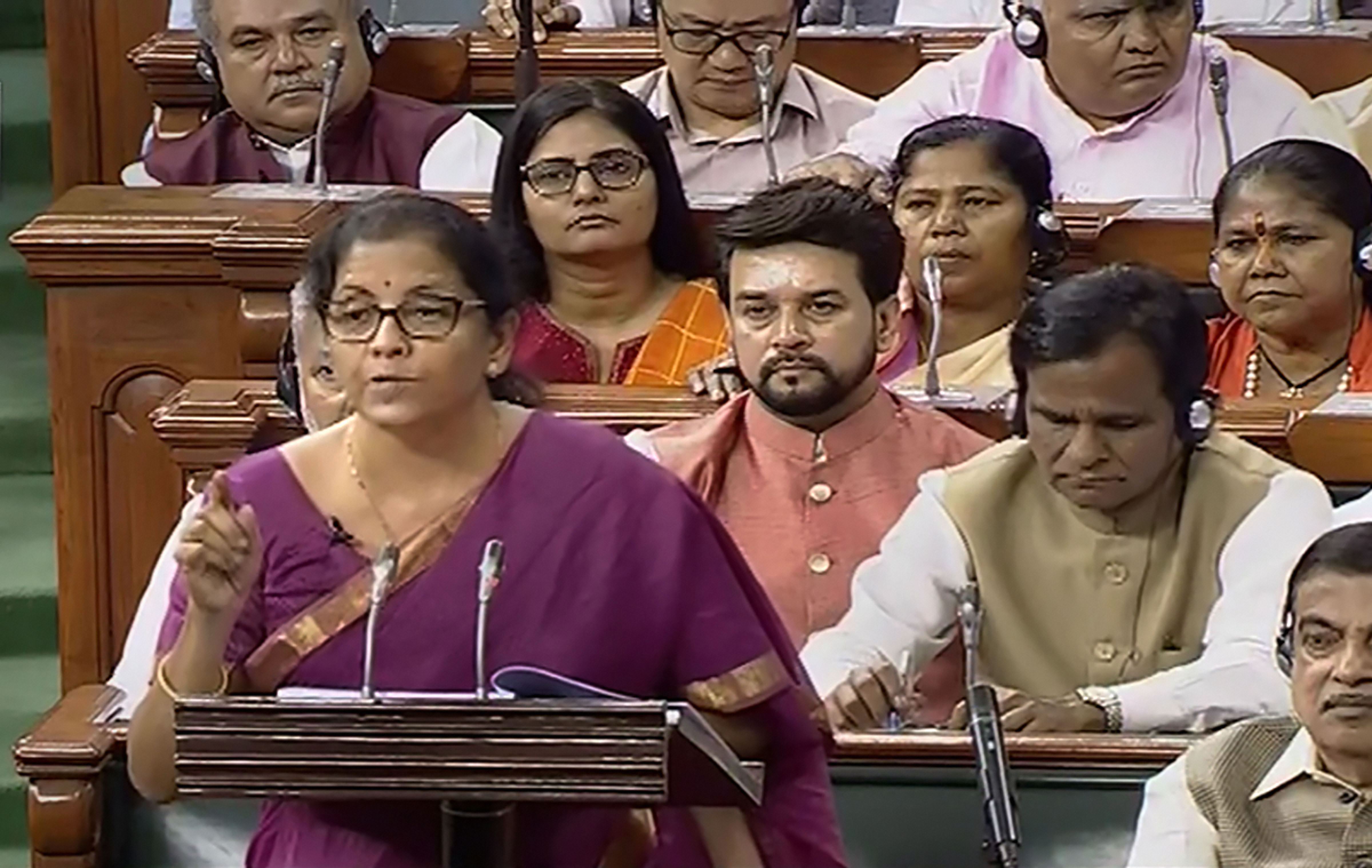
Sitharaman falters while quoting Tamil poet, colleagues correct her

When Union finance minister Nirmala Sitharaman quoted a few lines of the famous Tamil poet Pisiranthaiyar in her budget speech on Friday (July 5), while the entire House waited for her to translate it to English, her colleagues from Tamil Nadu helped in correcting her pronunciation when she faltered to utter the name of the poet.
The trend of quoting Tamil poets isn’t new to Parliament. Earlier, former finance minister P Chidambaram had quoted Tamil poet Thiruvalluvar during his Budget speeches. Following in his footsteps, Sitharaman quoted a poem written by Pisiranthaiyar, the poet who gave his life for the friendship with Chola king Koperum Cholan.
She read the following lines from the poem ‘Yaanai Pukka Pulam’ in Purananooru:
Arivudai vendhan neri arindhu koliney
Parivu thapa edukkum pindam nachchin
Yaanai pukka pulam pola
Thaanum unnaan; ulagamum kedumey…”
When translated, the poem says when you harvest rice from a paddy field, tie it into small bundles (kavalam). The elephant will feed on the bundles for several days. But even if there are a hundred paddy fields and the elephant is allowed to feed itself, it will only end up destroying the crops.
Drawing a parallel between the elephant’s story and the country’s economy, Sitharaman said an able leader should show economic prudence while collecting tax, to enable the country to benefit from it. But if the leader lacks knowledge of economics and starts collecting tax without any concern for its citizens, the country will become like the elephant and head out on the path of destruction. Because of that, not only the leader will become weak, but he will also weaken his country’s economy.
Also read: Budget: Inspired by Tamil text, FM wants more rice, but ignores elephant in the room

